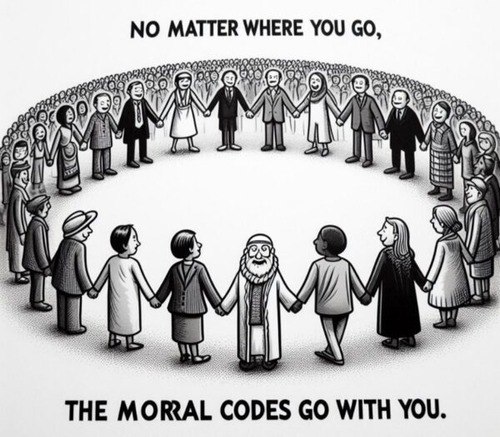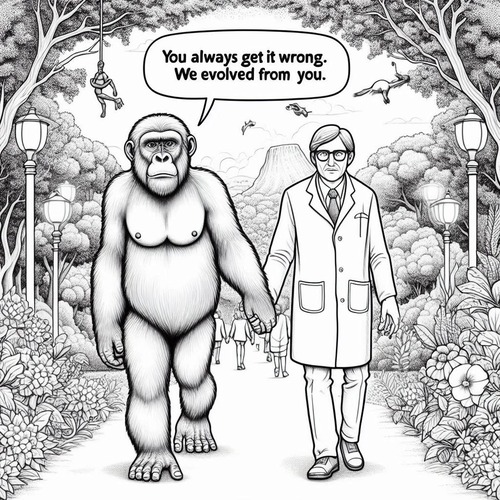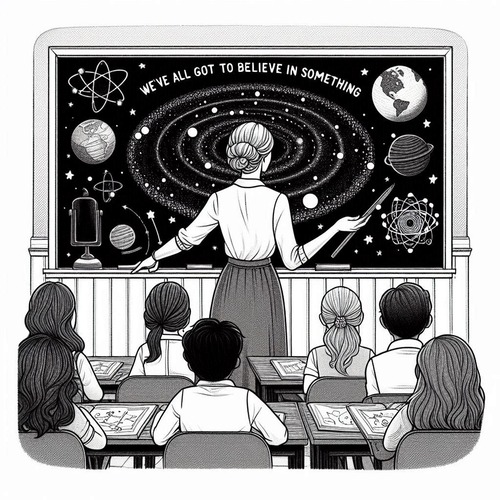The Universal Moral Laws: Signposts to the Divine
Moral Laws: A Universal Truth Across Borders
In every corner of the world, regardless of culture or creed, certain acts are universally condemned. Rape and murder, for instance, are atrocities that transcend geographical and societal boundaries, and are recognized as inherently wrong by the collective human conscience. These universal moral laws which are explained far better by the likelihood of God’s existence than the idea that they arose as the product of matter, time and chance, begs the question: could such a consensus be a mere coincidence, or does it point to an underlying moral law that governs our sense of right and wrong?
The human experience of morality is not just a social construct but a profound and universal phenomenon that persists across cultures and epochs. Throughout history, core moral values such as honesty, compassion, and fairness have been upheld as guiding principles of human conduct. This remarkable consistency across diverse societies suggests the presence of moral universals, originating from a source beyond human invention—a moral lawgiver.
The Universal Moral Laws
Despite staggering diversity in belief systems, practices and cultural expressions, a profound unity underlies the moral codes of human societies. Thou shalt not kill. Thou shalt not steal. Thou shalt not bear false witness. These primordial moral injunctions have been sacred across the world, pointing towards a universal moral grammar that all people intuitively understand.
The Objective Nature of Moral Oughts
When we assert a blatant injustice or a reprehensible act is morally wrong, we are not merely expressing a personal preference—we are invoking a binding ethical reality that exists independently of what any individual or culture avows. The Moral Argument posits that such objective moral oughts can only be adequately grounded in a transcendent, objective source of ethical truth.
The Divine Command Theory
One of the most robust explanations for this ethical objectivity is the Divine Command Theory, which roots morality in the commands of a supremely good, authoritative lawgiver. On this view, objective moral duties flow from the immutable nature and will of God. Murder is evil not by cultural consensus, but because it violates the objective moral order established by a cosmic ethical lawgiver.
The Inadequacy of Naturalism
Conversely, in a purely naturalistic framework devoid of any transcendent reality, morality loses its objective foundations. Ethics could be dismissed as subjective preferences shaped by evolutionary expedients like kin selection and reciprocal altruism. The awesome weight of moral oughts dissolves into the fleeting echoes of chemical and eonic contingencies. Moral realism requires metaphysical realism.
The Argument from Moral Experience
Our lived moral experience resonates with objective ethical realities. We feel moral obligation as a profound imperative, not a personal choice. Our moral intuitions point to binding ethical truths that cannot be revised by any individual or majority. The universal human phenomena of guilt, moral conviction and injustice-sensitivity all presuppose objective moral laws. The Moral Argument suggests a transcendent source best accounts for these deep moral instincts.
The Divine Foundations of Ethics
The universal moral laws mount a formidable cumulative case: The worldwide consensus on moral universals despite radical cultural divergences, the objective nature of ethical oughts, the ontological inadequacy of naturalism to ground moral realism, and the phenomenology of human moral experience all point towards a divine foundation for the moral order.
This powerful argument forces us to grapple with ethics’ cosmic significance. If objective moral truths require a transcendent source, the implications are staggering. Our moral faculties take on the grandeur of a divine endowment, an awesome cosmic privilege conferring human beings with profound ethical duties. The Moral Argument suggests the human conscience reverberates with the harmony of universal moral laws emanating from the mind of God. It elevates ethics from a relativistic preference to a sacred vocation rooted in objective realities and divine obligations. Even for the sceptical, it demands wrestling with morality’s deepest metaphysical significance.
Related Reads:
- The Ontological Argument: Can We ‘Logic’ Our Way to God?
- Aquinas’ Quinque Viae: Timeless Arguments for the Existence of God
- The Kalam Cosmological Argument: A Quest for Cosmic Beginnings
- The Teleological Argument: Unveiling Design in a Universe of Wonder
- The Fine-Tuning Argument: Can Orchestras Compose and Conduct Themselves?
Editor's Pick

Do Christians Need Holy Shrines? Why the Reformed Answer Is No
Walk into a medieval cathedral and you'll encounter ornate shrines, gilded reliquaries, and designated "holy places" where pilgrims gather to [...]

I Want To Believe, But Can’t: What Do I Do?
"I want to believe in God. I really do. But I just can't seem to make it happen. I've tried [...]

BC 1446 or 1250: When Did the Exodus Really Happen?
WHY REFORMED SCHOLARS SUPPORT THE EARLY DATE Many a critic makes the claim: “Archaeology has disproven the biblical account [...]

Does God Know the Future? All of It, Perfectly?
Think about this: our prayers tell on us. Every time we ask God for something, we’re confessing—often without realising it—what [...]

Can Christian Couples Choose Permanent Birth Control?
Consider Sarah, whose fourth pregnancy nearly killed her due to severe pre-eclampsia, leaving her hospitalised for months. Or David and [...]

Bone of My Bones: Why Eve Was Created From Adam’s Body
"This at last is bone of my bones and flesh of my flesh!" Adam's joyful exclamation upon first seeing Eve [...]

Is Calvinism Fatalism in Christian Disguise? Think Again
We hear the taunt every now and then: "Calvinism is just fatalism dressed up in Christian jargon." Critics argue Reformed [...]

Can Churches Conduct Same-Sex Weddings?
In an era of rapid cultural change, churches across America face mounting pressure to redefine their understanding of marriage. As [...]

Gender Reassignment: Can Christian Doctors Perform These Surgeries?
In the quiet of a clinic, a Christian physician faces a challenging ethical question. A patient sits across the desk, [...]

‘What Sorrow Awaits You Who Are Rich…’: What Does Jesus Mean?
The words hang in the air like a sword over comfortable Christianity: “What sorrow awaits you who are rich, for [...]
SUPPORT US:
Feel the Holy Spirit's gentle nudge to partner with us?
Donate Online:
Account Name: TRUTHS TO DIE FOR FOUNDATION
Account Number: 10243565459
Bank IFSC: IDFB0043391
Bank Name: IDFC FIRST BANK






